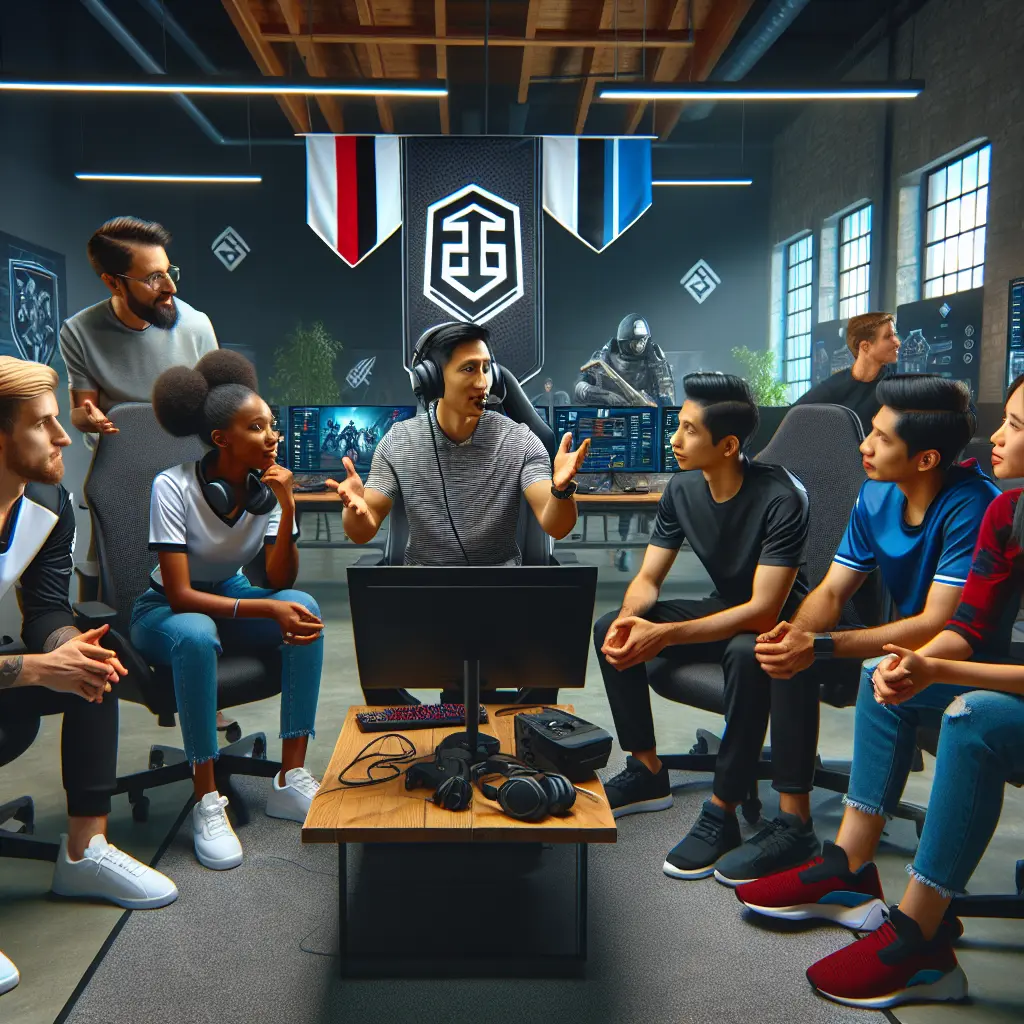
In the rapidly evolving arena of competitive gaming, the concept of esports team culture has become more crucial than ever. As esports gains global recognition, with its inclusion in events like the Olympic Esports Games starting in 2025, the focus on building a successful esports team has intensified. This shift raises important questions about the dynamics and cultural shifts required for esports teams to excel on such prestigious platforms.
Understanding the Importance of Esports Team Culture
At the core of any successful esports team lies a robust team culture. This culture extends beyond assembling players with exceptional skills; it involves fostering a positive esports environment. As esports emerges as a global spectacle, akin to traditional sports, the need for effective team dynamics becomes paramount. A well-established culture ensures teams navigate challenges cohesively and celebrate victories collectively.
Recent expansions, such as G2 Esports' strategic hiring from the agency world, reflect the industry's dynamic nature. This shift towards a holding company model within the esports industry suggests that traditional boundaries of what constitutes a 'team' are expanding. Thus, developing an esports team culture must now incorporate diverse skill sets and broader strategic visions.
Key Elements of a Thriving Esports Team Culture
Communication and Collaboration
- Effective communication is foundational for any successful team. Open channels for dialogue and feedback create an environment of mutual respect and trust, ensuring every team member feels valued and heard.
Leadership and Management
- Leadership plays a crucial role in fostering teamwork and maintaining morale. Strong leaders guide teams through highs and lows while nurturing individual talents. This involves strategic in-game decisions and effective interpersonal management.
Adaptability and Innovation
- The dynamic nature of the esports industry demands adaptability. With market projections estimating the sector to reach USD 7.27 billion by 2030 (ResearchAndMarkets), teams must be innovative to remain competitive.
Strategies for Building a Cohesive Esports Team
Esports Team Building Activities:
- Regular activities outside gaming help strengthen bonds among team members, enhancing collaboration during gameplay.
Developing Resilience:
- Implementing strategies that build mental resilience prepares teams for the pressures of competitive gaming.
Investing in Personal Growth:
- Encouraging continuous learning and professional development leads to individual growth, benefiting the team's overall performance.
Case Study: G2 Esports' Strategic Expansion
G2 Esports' foray into the agency world exemplifies how strategic expansion can benefit team culture. By integrating professionals from outside gaming, G2 aims to blend new perspectives with existing expertise. This move reflects a broader trend within esports organizations to diversify portfolios and enhance cultural footprint, promoting inclusivity and diversity—essential elements for a resilient team culture.
The Impact of Technological Advancements
The integration of cutting-edge technology like virtual reality and augmented reality enhances viewer experiences and expands market reach (Future Market Insights). As platforms collaborate to offer immersive experiences, esports teams must adapt strategies to leverage these innovations effectively.
Embracing Global Trends
With reports indicating robust growth in licensed sports merchandise, particularly in developing regions (ResearchAndMarkets), esports teams have opportunities to tap into new revenue streams by expanding their global brand presence. This aligns with fostering a teamwork culture that values diverse market insights and embraces global trends.
Conclusion
Building a successful esports team culture is a nuanced endeavor extending far beyond gaming prowess. Thriving teams are built on strong foundations of communication, collaboration, and leadership. Effective communication ensures each member feels respected, while adept leadership nurtures strengths and guides teams through challenges.
The rapidly evolving industry demands adaptability and innovation, requiring teams to explore new strategies and technologies continuously. G2 Esports' expansion into the agency world highlights the importance of blending diverse skills and perspectives, enriching team culture and positioning organizations to embrace inclusivity.
As you consider these insights, reflect on how you can contribute to or shape your own esports endeavors. Whether you're a player, manager, or enthusiast, there's always room to foster an environment that champions growth and unity.
I invite you to share your thoughts on building a robust esports team culture. What strategies have you found effective? How do you see the future of esports evolving? Engage with us in the comments below. Let's continue this conversation and explore how we can collectively elevate the world of competitive gaming.
Stay passionate, stay innovative, and let's shape the future of esports together.
Author: Lucas Bennett